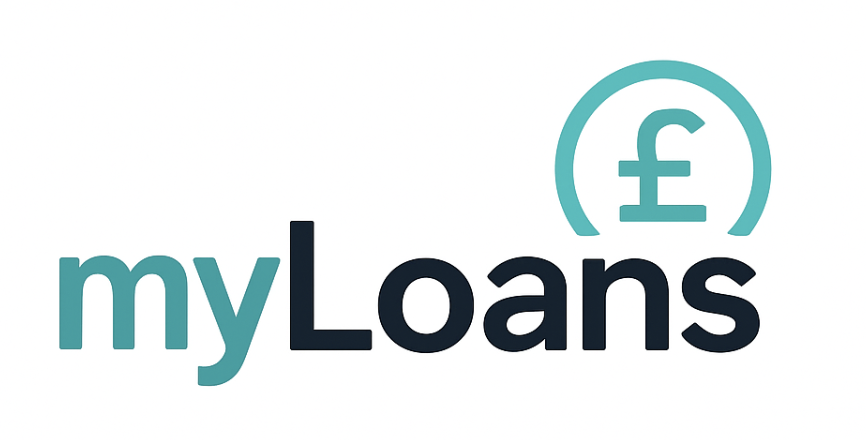Is Debt Consolidation Right for You?
Debt can feel overwhelming, and the stress of managing it can seep into every aspect of your life. From juggling multiple payments and dealing with high interest rates to keeping track of various due dates, the chaos can be mentally taxing. One option to simplify your financial life is debt consolidation. But is it the right choice for you? This guide will explain how debt consolidation works in the UK and whether it fits your financial situation.
What is Debt Consolidation?
Debt consolidation is a financial strategy that combines multiple debts into a single loan or repayment plan. Instead of making several payments each month, you make just one — ideally at a lower interest rate. The goal is to simplify your finances and, in some cases, reduce the total interest you pay.
The Mechanics of Debt Consolidation
At its core, debt consolidation involves taking out a new loan to repay existing debts. This can mean:
-
Lower monthly payments.
-
A fixed repayment schedule.
-
Easier budgeting.
UK lenders are required to show a Representative APR so you can compare costs fairly.
Benefits of Streamlined Payments
Consolidating debt reduces the number of payments to track each month. This can lower stress, help you avoid missed payments, and make it easier to budget.
Interest Rate Savings
If you have a good credit history, a consolidation loan may offer a lower interest rate than credit cards or overdrafts. Over time, this could reduce the total you pay in interest.
Types of Debt Consolidation
Personal Consolidation Loans
Unsecured loans from banks, building societies, or online lenders that are used to pay off multiple debts. They usually have fixed interest rates and terms.
Balance Transfer Credit Cards
0% balance transfer cards allow you to move high-interest credit card debt onto a new card with no or low interest for a set period. You’ll usually pay a transfer fee, and you must clear the balance before the promotional period ends.
Secured/Homeowner Loans or Remortgaging
If you’re a homeowner, you could use the equity in your property to consolidate debts, either via a secured loan or by remortgaging. Be aware: your home is at risk if you don’t keep up repayments.
Debt Management Plans (DMPs)
Arranged through charities such as StepChange or National Debtline, DMPs consolidate your debts into one monthly payment. They can sometimes negotiate reduced interest or charges with creditors.
Debt Settlement Options
Negotiating to pay less than the full balance owed is rare in the UK and usually only considered if you’re in financial difficulty. It can seriously affect your credit record.
Is Debt Consolidation a Good Idea?
Pros
-
Simplified payments – one monthly payment instead of many.
-
Potentially lower interest rates – if you qualify.
-
Credit score benefits – making consistent on-time payments can improve your credit profile.
Cons
-
Fees – transfer fees, arrangement fees, or early repayment charges may apply.
-
Risk of more debt – if you clear your credit cards but keep using them.
-
Collateral risk – with secured loans, your home may be repossessed if you don’t repay.
Who Should Consider Debt Consolidation?
You may benefit if:
-
You have multiple high-interest debts.
-
You can access a lower APR consolidation loan.
-
You’re committed to sticking to a budget and not taking on new credit.
When It Might Not Be Suitable
Debt consolidation may not be right if:
-
You have a poor credit record (higher APRs may cancel out benefits).
-
Your debts are small (the costs may outweigh the benefits).
-
You struggle with overspending (risk of running up new debts).
Steps to Consolidate Debt in the UK
-
List your debts – balances, APRs, and monthly payments.
-
Check your credit file – from Experian, Equifax, or TransUnion.
-
Compare options – personal loans, 0% balance transfer cards, or secured loans.
-
Apply for your chosen option – ensuring you understand the Representative Example.
-
Pay off debts – use the funds to clear your old accounts.
-
Budget carefully – stick to your new payment plan and avoid new borrowing.
-
Monitor progress – review your debts and credit report regularly.
Getting Help and Reading Reviews
When choosing a lender, use UK comparison websites and ensure the provider is FCA-authorised. For debt management or advice, speak to charities such as:
-
StepChange Debt Charity
-
National Debtline
-
Citizens Advice
These organisations offer free and impartial guidance.
Final Thoughts
Debt consolidation can be a powerful tool, but it’s not a quick fix. It only works if you change the habits that led to the debt in the first place and commit to repayment. For many in the UK, it’s a first step towards financial freedom — but only if managed carefully.
Alternatives to Payday Loans | Safer Borrowing Options
Payday loans are often marketed as a quick fix for cash emergencies, but they are not the only option available. Whether you’re facing an unexpected bill, car repair, or temporary cash shortfall, there are several alternatives to payday loans that may offer lower...
Payday Loans with Bad Credit | Direct Lender Options
If you’ve been refused credit elsewhere and are wondering whether you can still get a payday loan with bad credit, you’re not alone. Thousands of people in the UK search every month for options like “payday loans with bad credit” or “direct lender payday loans”. While...
Personal Loan Debt Consolidation UK – Is It Right for You?
Juggling multiple credit cards, overdrafts, or loans can be stressful and expensive. A debt consolidation loan allows you to combine everything into a single monthly repayment, often at a lower interest rate. In 2025, UK lenders from high street banks to online...
Emergency Loans UK – How to Borrow Fast in 2025
When an urgent expense hits — like car repairs, medical bills, or a broken boiler — quick access to funds can be essential. In 2025, emergency loans in the UK provide a way to borrow fast, with some lenders offering same-day decisions and payouts. This guide explains...
Top 10 Personal Loan Providers UK 2025 – Rates, Features & Eligibility
The UK personal loan market in 2025 offers more choice than ever, with banks, supermarkets, online lenders, and credit unions all competing for borrowers. The best deal for you depends on your credit score, loan size, and repayment term — but comparing providers side...
Best Debt Consolidation Loans UK 2025 | Top Options
Managing multiple debts can feel overwhelming, especially with credit cards, overdrafts, and personal loans all charging different interest rates. A debt consolidation loan can simplify your finances by rolling everything into one fixed monthly repayment — often at a...
Best Bad Credit Loans UK 2025 – Top Lenders Compared
Having a poor credit score, CCJs, or past defaults doesn’t mean borrowing is out of reach. In 2025, several UK lenders specialise in products designed for people with bad credit — offering smaller loans, flexible repayment terms, and eligibility checks that won’t harm...
Home Repair Loans UK – How to Cover Unexpected Costs in 2025
A leaking roof, broken boiler, or urgent plumbing issue can quickly turn into an expensive problem — often when savings aren’t available. In 2025, home repair loans in the UK provide a way to spread the cost of essential fixes into manageable monthly repayments. This...
Green Energy Loans UK – How to Finance Eco-Friendly Home Improvements in 2025
Eco-friendly upgrades such as solar panels, insulation, heat pumps, and EV chargers can cut energy bills and boost property value — but they require a significant upfront investment. In 2025, green energy loans in the UK provide a way to spread the cost of sustainable...
Moving House Loans UK – How to Cover Relocation Costs in 2025
From deposits and removal vans to solicitor fees and new furniture, moving house in the UK can quickly add up to thousands of pounds. Not everyone has savings set aside to cover these costs upfront. In 2025, moving house loans in the UK provide a way to spread...
Education Loans UK – How to Fund Studies and Professional Courses in 2025
Not all education in the UK is covered by government student finance. Postgraduate degrees, professional qualifications, and private training often require self-funding — with tuition fees and course costs running into thousands of pounds. In 2025, education loans in...
Holiday Loans UK – How to Spread the Cost of Travel in 2025
Holidays can be some of the most rewarding experiences of the year, but they often come with a price tag that’s hard to cover upfront. From flights and hotels to all-inclusive packages and once-in-a-lifetime trips, the costs can add up quickly. In 2025, holiday loans...
Best Personal Loans UK 2025 – Top Lenders Compared
The UK personal loan market in 2025 is more competitive than ever, with high street banks, supermarkets, online lenders, and credit unions all offering products to suit different needs. Choosing the right provider can save you hundreds in interest and ensure...
Medical Loans UK – How to Finance Healthcare Costs in 2025
While the NHS covers most essential treatment, waiting lists, private care, and specialist procedures mean many people face out-of-pocket medical expenses. From dental work and fertility treatment to cosmetic surgery and urgent private healthcare, costs can run into...
Car Loans UK – Personal Loan vs Hire Purchase vs PCP in 2025
Buying a car in 2025 usually means more than just choosing the right vehicle — it also means deciding how to pay for it. In the UK, the three main options are a personal loan, hire purchase (HP), or personal contract purchase (PCP). Each has its own advantages,...
















